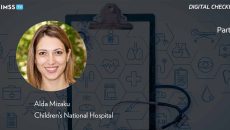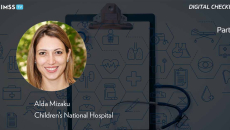Operations
Project management frameworks such as Kanban let teams see their tasks in a layout, which fosters transparency and understanding of their needs says Rachele Watts, Joel Bond and Evgeny Shekhtman of Providence Health's Agile Practice Office.
Ian Shakil, chief strategy officer at Commure, explores the role of AI in clinical documentation and note-taking, emphasizing the importance of keeping humans in the loop and expanding the technology's impact across healthcare.
CMS raised the payment for homecare by only a half a percent, and that does not compare to inflation, says Luke Rutledge, president of Homecare Homebase, who adds: "That does not equate to the costs that continue to rise for our customers."
Patients are interested in AI to try and garner more information about their care or their child's care. Tools like ChatGPT are being utilized more by patients, says Dr. Samuel Browd of UW and Seattle Children's and the CMO at Proprio.
AI models used to enhance cybersecurity include supervised, unsupervised machine learning and genAI that can take complex data and distill it down to something human-readable, says Etay Maor, Cato Networks' chief security strategist.
HIMSS25
Because healthcare IT requires an enormous amount of late hours, a lot of travel and in-person meetings, work-life balance is a major challenge for women working in IT, says Jeffery Daigrepont, SVP of Coker Group.
In a fast-moving world, staying abreast of the latest developments and regulations and staying connected to new initiatives and cutting-edge technology are some tips from Alda Mizaku, chief data and AI officer at Children's National Hospital.
Strong relationships and engaging with clinical team members is essential in assuring that AI projects are grounded in the real-world needs of their department, says Alda Mizaku, chief data and AI officer at Children's National Hospital.
Post-acute care organizations face the same threats as their larger counterparts when it comes to combating cybersecurity attacks. They are often under-resourced and lack funding, says Robert Latz, CIO of Trinity Rehabilitation Services.
Healthcare AI technology is additive and complementary, not punitive. It supports providers, rather than replacing them, says Dr. William Morris, CMO, Ambience Healthcare, and adds, "This is a moment where technology is done with you and not at you."









